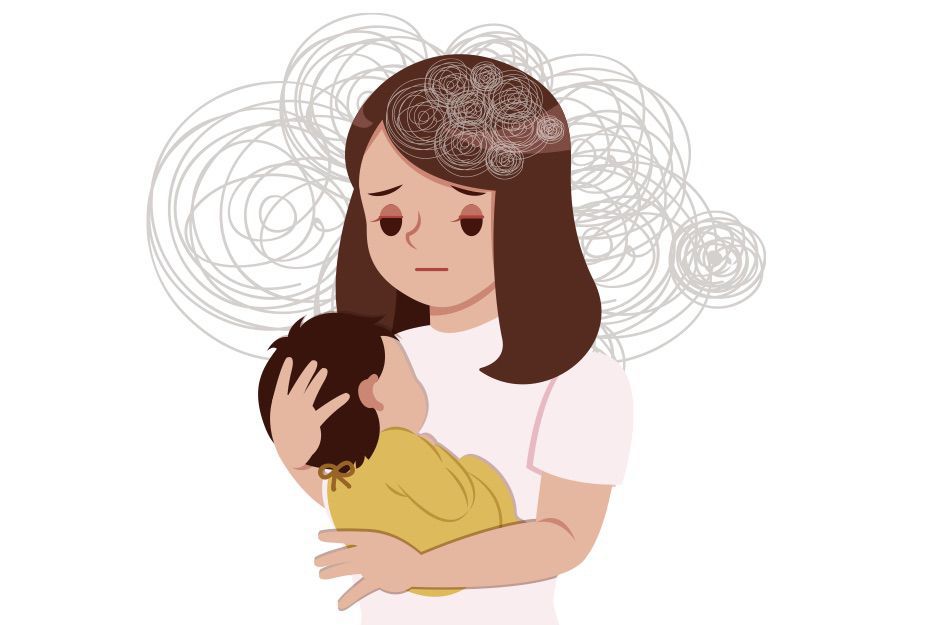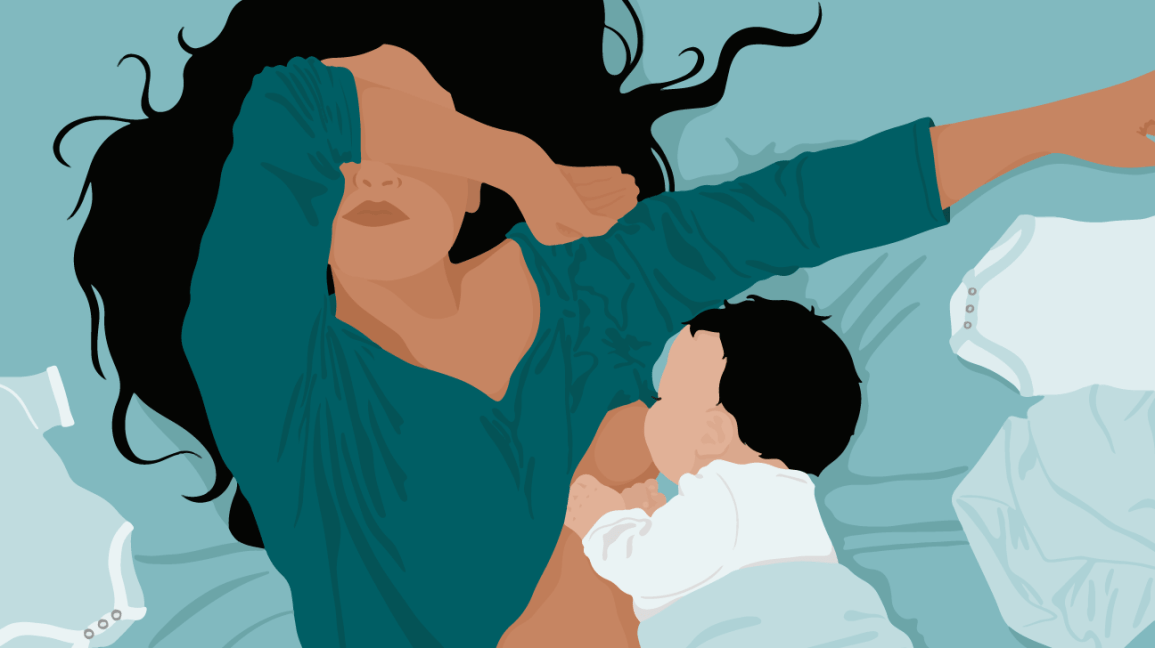
A baby’s birth can cause a jumble of strong emotions, from excitement and joy to anxiety and fear. But it may also lead to something that you do not expect—depression.
After childbirth, most new moms experience postpartum “baby blues” which typically include mood swings, crying spells, anxiety, and trouble sleeping. Usually, baby blues start within the first two to three days after birth, and can last up to two weeks.
What exactly is Postpartum Depression?
It’s the type of depression you may get after you have a baby. It can start any time during the first year of your baby, but during the first 3 weeks after birth, it’s most common for you to start feeling its effects.
You might feel sad, hopeless, and guilty if you have it, because you do not feel like you want to bond with your baby or care for it. Postpartum depression has an effect not only on first-time moms. Even if you did not have it when your other children were born, you can still get it.

What Causes Postpartum Depression?
Three main causes of postpartum depression are:
- Stress and problems: Whether you don’t want to be pregnant, or if your husband and family don’t help you take care of your baby, you’re more likely to be unhappy as a new mother. The disorder is often more prevalent in females with money issues, drug or alcohol problems, or other significant sources of stress.
- Hormones: When you’re pregnant, the hormone levels increase. They drop unexpectedly after your baby is born. In some females, this quick change can cause depression.
- History of depression: You might be more likely to experience postpartum depression if you’ve had depression before, or it runs in your family.
What are the Symptoms of it?
Signs and symptoms of postpartum depression might include, but are not limited to:
- Depressed mood
- Extreme mood swings
- Crying excessively
- Difficulty in bonding with your child
- Feeling Detached from family and friends
- Appetite loss or eating a lot more than normal
- Inability to sleep (insomnia) or excessive sleep
- Overwhelming fatigue or energy loss
- Intense irritation and anger
- Afraid you’re not a good mother
- Hopelessness
- Feelings of worthlessness embarrassment, remorse or inadequacy
- Decreased ability to think clearly, focus or make choices
- Restlessness
- Extreme anxiousness and panic attacks
- Thoughts of harming yourself or your child
- Recurrent death or suicidal thoughts

How can you prevent it from happening to you?
- Getting educated about this once-taboo topic allows you to create an atmosphere that prevents or decreases postpartum depression severity. The following strategies will make it easier to move to motherhood.
- Talk to your OB-GYN or pediatrician: These healthcare providers have regular contact with new and expectant mothers and may be able to better recognize Postpartum Depression symptoms. It is important that you select people with whom you can communicate and who are involved in your wellbeing as well as the baby’s welfare.
- Get assistance at home: Accept your partner, friends, family members, or neighbors for household assistance. If you feel overwhelmed or resentful, instead of waiting for someone to provide assistance, you must yourself ask for help.
- Engage in a support group: Isolation leads to anxiety and depression. It will put your mind at ease just knowing that others feel the same mixture of joy and frustration.
- Put all of this in perspective: It will be a struggle to feel positive sometimes between hormonal swings and all the changes in your life, particularly if you think this is going to be the best time of your life. You’ve got years of the best times ahead, don’t persuade yourself that the first weeks or months of motherhood need to be perfect.
- Spare some time for light workouts: A study of more than 1,000 mothers showed that those who exercised before and after the birth of their child, appeared to feel stronger emotionally and more socially active than those who did not.
Kritika is a freelance writer with Femsay.com

